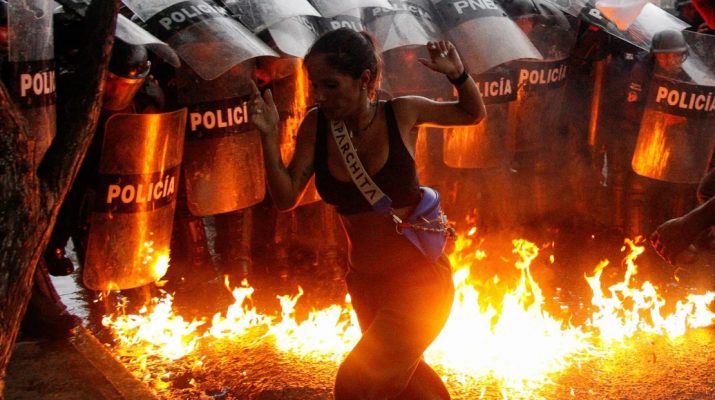By Debra Rono
Tensions continue to escalate in Venezuela as protests erupt following the announcement of incumbent President Nicolas Maduro’s victory in the general elections.
The elections, held on Sunday, the 28th, resulted in the National Electoral Council (CNE) declaring Maduro re-elected for an additional six-year term.
However, the opposition has contested these results, alleging that they were tainted by irregularities.
Demonstrators set fire to car tyres, obstructing highways, and some even burned images of Maduro displayed on billboards. Reports from international media indicate that protesters managed to topple a statue of Hugo Chavez, Maduro’s predecessor, in the state of Falcon.
Venezuelan police, deployed in significant numbers to cities such as Maracay and Caracas, utilized tear gas to disperse the crowds, some of whom were advancing towards Miraflores, the equivalent of Kenya’s State House.
The official opposition party claims that their candidate, Edmundo González, secured over 70% of the votes, while the CNE asserts that Maduro received 51% compared to González’s 44%.
The opposition further alleges that they were denied access to the CNE headquarters during the vote-counting process and that only a limited number of observers were permitted to monitor the election.
Maduro, a 61-year-old former union leader and foreign minister, first won election after the death of Hugo Chavez in 2013 and was re-elected in 2018, both of which the opposition claims were fraudulent.
His administration has been marked by economic collapse, widespread migration, and deteriorating relations with Western nations, including sanctions from the U.S. and EU that have severely impacted the already struggling oil sector.

